Your cart is currently empty!
Tag: Personal
Cybersecurity 101: Essential Tips for Keeping Your Personal Information Safe Online
In today’s digital age, cybersecurity is more important than ever. With cyber attacks on the rise, it’s crucial to take steps to protect your personal information online. Here are some essential tips for keeping your personal information safe:1. Use strong, unique passwords: One of the easiest ways for hackers to access your personal information is through weak passwords. Make sure to use strong, unique passwords for each of your online accounts. Avoid using easily guessable information such as your birthday or pet’s name.
2. Enable two-factor authentication: Two-factor authentication adds an extra layer of security to your accounts by requiring a second form of verification, such as a code sent to your phone. This can help prevent unauthorized access to your accounts.
3. Be cautious of phishing scams: Phishing scams are a common tactic used by cybercriminals to trick individuals into revealing sensitive information. Be wary of emails or messages that ask for personal information or contain suspicious links. Always verify the sender’s identity before clicking on any links.
4. Keep your software up to date: Software updates often contain security patches that fix vulnerabilities that could be exploited by hackers. Make sure to regularly update your operating system, antivirus software, and other applications to stay protected.
5. Use a secure internet connection: When accessing sensitive information online, make sure to use a secure internet connection, such as a password-protected Wi-Fi network. Avoid using public Wi-Fi networks for tasks that involve sensitive information, as they can be easily intercepted by hackers.
6. Monitor your accounts regularly: Keep an eye on your bank accounts, credit card statements, and other online accounts for any suspicious activity. Report any unauthorized transactions or changes to your account immediately.
7. Secure your devices: Protect your devices with strong passwords or biometric authentication, such as fingerprint or facial recognition. Consider using encryption tools to secure your data in case your device is lost or stolen.
By following these essential tips, you can help protect your personal information online and reduce the risk of falling victim to cyber attacks. Stay vigilant and proactive in safeguarding your digital identity to ensure a safe and secure online experience.
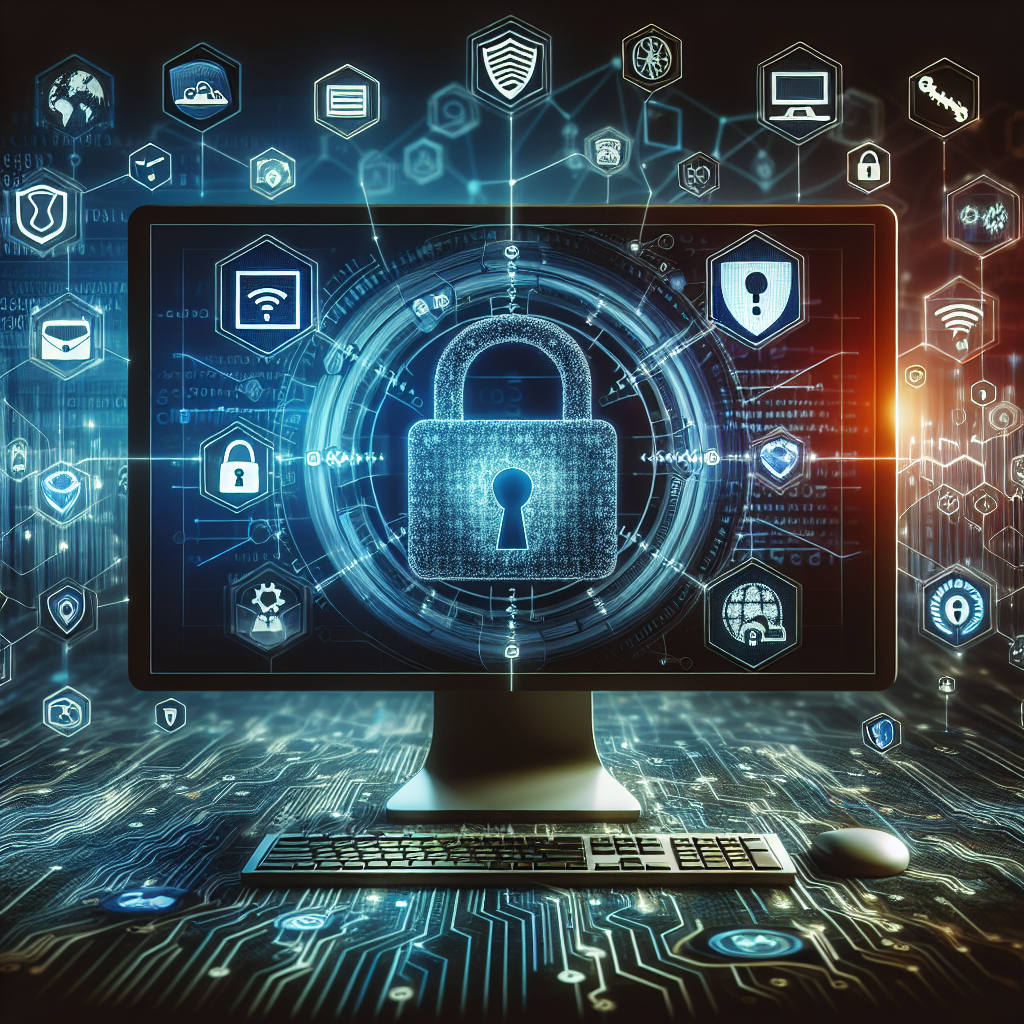
How to Protect Your Personal Data Online: Cybersecurity Tips
In today’s digital age, protecting your personal data online is more important than ever. With the rise of cyber threats and data breaches, it is crucial to take proactive steps to safeguard your sensitive information. By following these cybersecurity tips, you can minimize the risk of falling victim to online scams and identity theft.1. Use strong, unique passwords: One of the simplest and most effective ways to protect your personal data online is to use strong and unique passwords for each of your accounts. Avoid using easily guessable passwords like “123456” or “password.” Instead, create complex passwords that include a mix of letters, numbers, and special characters.
2. Enable two-factor authentication: Two-factor authentication adds an extra layer of security to your accounts by requiring a second form of verification, such as a code sent to your phone. This can help prevent unauthorized access to your accounts even if your password is compromised.
3. Keep your software up to date: Hackers often exploit vulnerabilities in outdated software to gain access to your personal data. Make sure to regularly update your operating system, web browsers, and other software to protect against security threats.
4. Be cautious of phishing scams: Phishing scams are a common tactic used by cybercriminals to trick individuals into revealing their personal information. Be wary of emails, messages, or websites that ask for sensitive information or prompt you to click on suspicious links. Always verify the sender’s identity before sharing any personal data.
5. Use secure Wi-Fi networks: When accessing the internet on public Wi-Fi networks, be cautious of potential security risks. Avoid conducting sensitive transactions or sharing personal information on unsecured networks, as hackers may intercept your data.
6. Limit the information you share online: Be mindful of the information you share on social media platforms and other online forums. Avoid posting personal details like your address, phone number, or financial information that could be used against you by cybercriminals.
7. Regularly monitor your accounts: Keep a close eye on your bank statements, credit reports, and online accounts for any suspicious activity. Report any unauthorized transactions or unusual changes to your account immediately to prevent further damage.
By following these cybersecurity tips, you can protect your personal data online and reduce the risk of falling victim to cyber threats. Stay vigilant and proactive in safeguarding your sensitive information to ensure a safe and secure online experience.
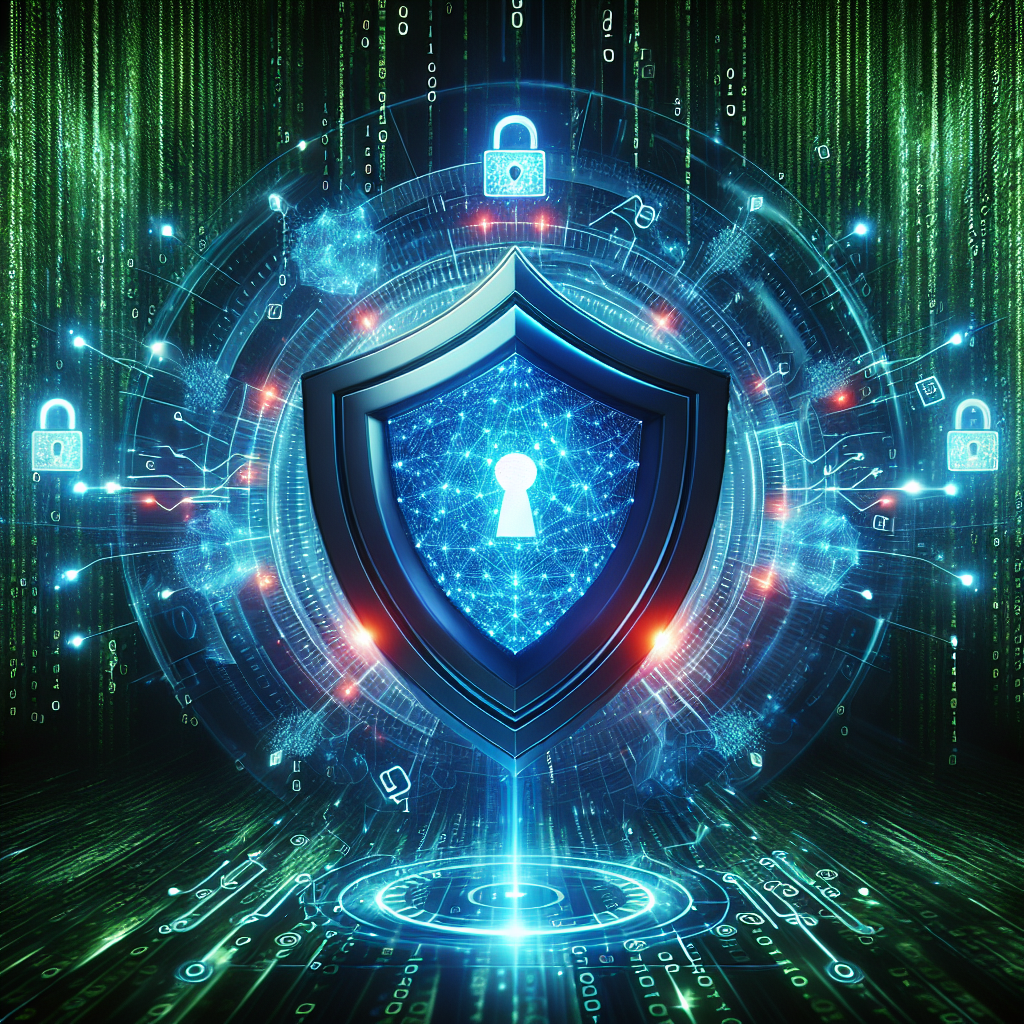
Protecting Your Personal Data: A Guide to Cybersecurity
In today’s digital age, protecting your personal data has never been more important. With cyber threats constantly evolving and becoming more sophisticated, it’s crucial to take proactive steps to safeguard your information from hackers and cybercriminals. Here are some tips to help you protect your personal data and enhance your cybersecurity:1. Use strong, unique passwords: One of the easiest ways for hackers to gain access to your personal data is through weak passwords. Make sure to use strong, complex passwords that include a mix of letters, numbers, and symbols. Additionally, avoid using the same password for multiple accounts, as this can make it easier for hackers to access all of your accounts if one is compromised.
2. Enable two-factor authentication: Two-factor authentication adds an extra layer of security to your accounts by requiring you to provide a second form of verification, such as a text message or email, in addition to your password. This makes it much harder for hackers to gain access to your accounts, even if they have your password.
3. Keep your software up to date: Software updates often include important security patches that fix vulnerabilities that hackers can exploit to access your personal data. Make sure to regularly update your operating system, web browser, and any other software you use to ensure that you have the latest security protections in place.
4. Be cautious of phishing scams: Phishing scams are a common tactic used by hackers to trick individuals into disclosing their personal information, such as login credentials or financial details. Be wary of unsolicited emails, text messages, or phone calls that ask for personal information or contain suspicious links or attachments. If in doubt, contact the company directly to verify the legitimacy of the communication.
5. Use a VPN: A virtual private network (VPN) encrypts your internet connection and masks your IP address, making it much harder for hackers to intercept your online activity and steal your personal data. VPNs are especially important when using public Wi-Fi networks, as these networks are often unsecured and can easily be compromised by cybercriminals.
6. Secure your devices: Make sure to secure your devices with a passcode or biometric authentication, such as fingerprint or facial recognition. Additionally, consider enabling device encryption to protect the data stored on your device in case it is lost or stolen.
By following these tips and implementing best practices for cybersecurity, you can protect your personal data and reduce the risk of falling victim to cyber threats. Remember, cybersecurity is an ongoing process, so make sure to stay informed about the latest threats and security measures to keep your data safe and secure.
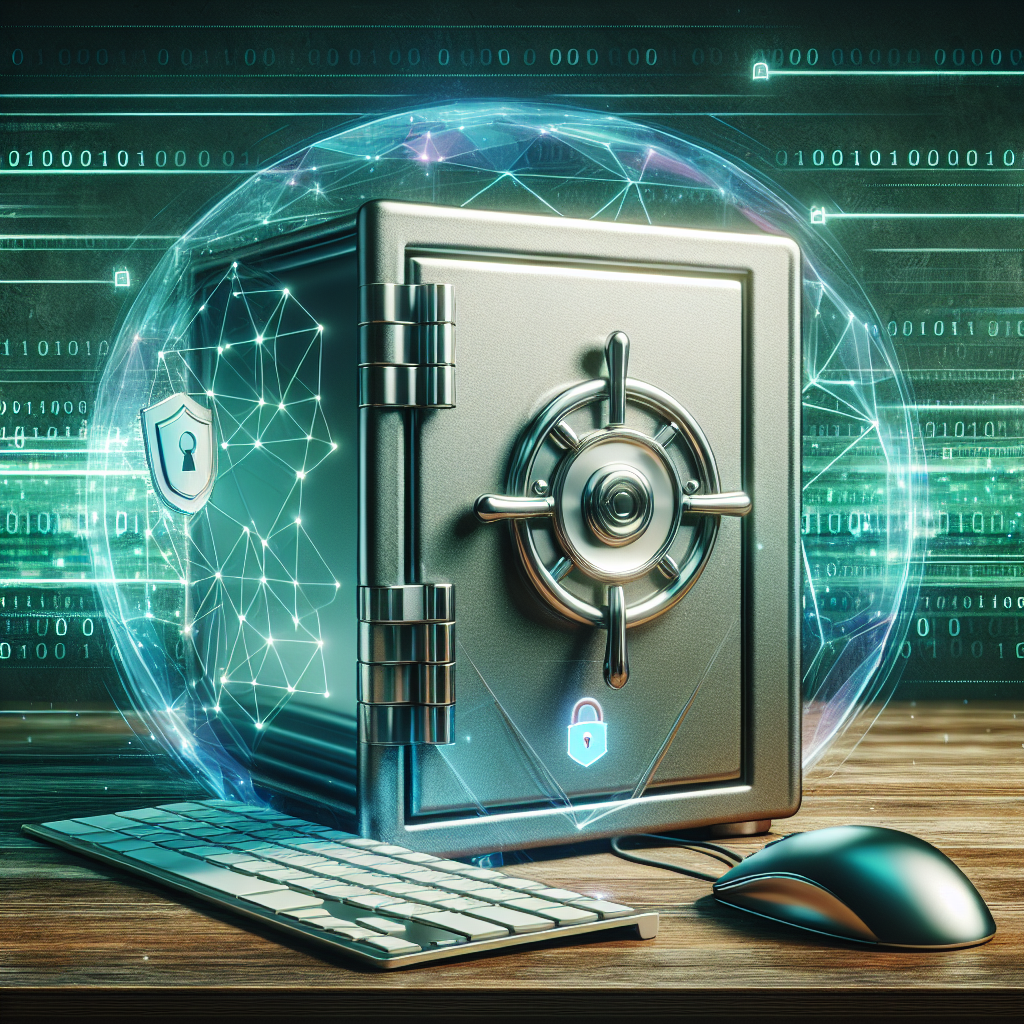
Cybersecurity for Beginners: Tips for Protecting Your Personal Information Online
Cybersecurity for Beginners: Tips for Protecting Your Personal Information OnlineIn today’s digital age, it’s more important than ever to prioritize cybersecurity and protect your personal information online. With cyber threats becoming increasingly sophisticated, it’s crucial for individuals to take proactive steps to safeguard their data. Whether you’re new to cybersecurity or looking to enhance your online security practices, here are some tips for protecting your personal information online.
1. Use strong, unique passwords
One of the simplest yet most effective ways to enhance your online security is by using strong, unique passwords for each of your accounts. Avoid using easily guessable passwords like “123456” or “password,” and opt for complex combinations of letters, numbers, and special characters. Additionally, consider using a password manager to securely store and manage your passwords.
2. Enable two-factor authentication
Two-factor authentication adds an extra layer of security to your accounts by requiring a second form of verification, such as a one-time code sent to your phone. Enable two-factor authentication on all of your accounts whenever possible to reduce the risk of unauthorized access.
3. Be cautious of phishing scams
Phishing scams are a common tactic used by cybercriminals to trick individuals into disclosing their personal information. Be wary of unsolicited emails, messages, or phone calls that request sensitive information or prompt you to click on suspicious links. To protect yourself from phishing scams, always verify the authenticity of the sender before providing any personal information.
4. Keep your software up to date
Software updates often include security patches that address vulnerabilities and protect against potential cyber threats. Make sure to regularly update your operating system, applications, and antivirus software to ensure that you’re running the latest security updates.
5. Secure your devices and networks
Secure your devices by setting up passcodes, biometric authentication, or encryption to prevent unauthorized access. Additionally, secure your home Wi-Fi network with a strong password and enable network encryption to protect your data from potential intruders.
6. Limit the information you share online
Be mindful of the information you share on social media platforms and websites, as cybercriminals can use this information to target you for phishing attacks or identity theft. Avoid posting sensitive information such as your full name, address, phone number, or financial details online.
7. Monitor your accounts regularly
Regularly monitor your accounts for any suspicious activity or unauthorized transactions. If you notice any unusual activity, report it to the appropriate authorities and take immediate steps to secure your accounts.
By following these tips for protecting your personal information online, you can enhance your cybersecurity and reduce the risk of falling victim to cyber threats. Remember, cybersecurity is a shared responsibility, and it’s important for individuals to take proactive steps to safeguard their data in today’s digital world.
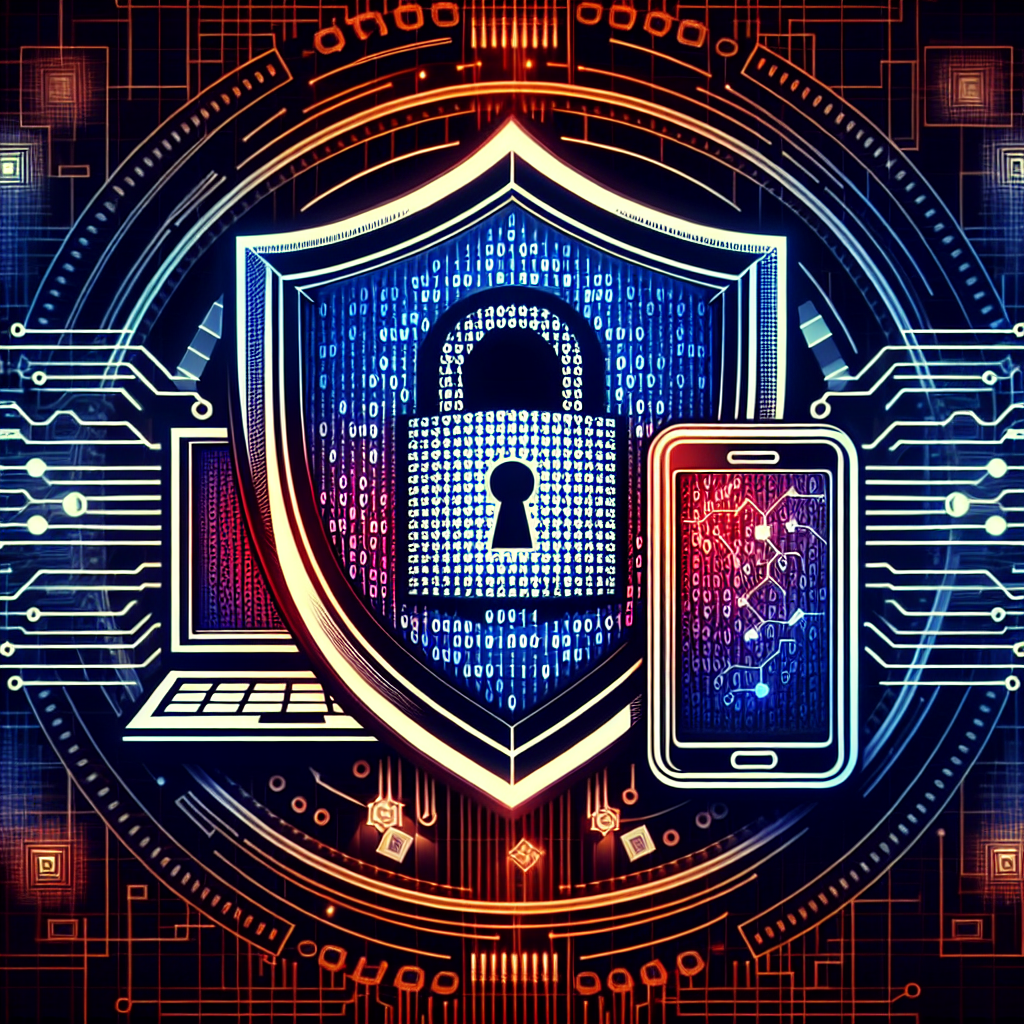
Protecting Your Personal Information: A Guide to Cybersecurity for Individuals
In today’s digital age, protecting your personal information has become more important than ever. With the rise of cybercrime and data breaches, it’s crucial for individuals to take proactive steps to safeguard their sensitive data. From financial information to personal details, hackers and identity thieves are constantly on the lookout for opportunities to exploit vulnerabilities and steal valuable information.One of the first steps in protecting your personal information is to use strong, unique passwords for all of your online accounts. Avoid using easily guessable passwords such as “password123” or your birthday, and instead opt for a combination of letters, numbers, and special characters. Additionally, consider using a password manager to securely store and generate complex passwords for each of your accounts.
Another important aspect of cybersecurity for individuals is to be cautious of phishing scams. These fraudulent emails, texts, or phone calls are designed to trick you into revealing sensitive information or downloading malicious software. Always verify the legitimacy of a sender before clicking on any links or providing any information, and avoid sharing personal details over unsecured networks.
It’s also crucial to keep your devices and software up to date with the latest security patches. Cybercriminals often exploit known vulnerabilities in outdated systems to gain access to your information, so regularly check for updates and install them promptly. Additionally, consider using security software such as antivirus and firewall protection to further safeguard your devices from malware and other threats.
When shopping online or sharing personal information, always look for secure websites with HTTPS encryption. This ensures that your data is transmitted securely and cannot be intercepted by hackers. Avoid entering sensitive information on unsecured websites or public Wi-Fi networks, as these can be easily compromised by cybercriminals.
Lastly, be mindful of the information you share on social media and other online platforms. Avoid posting sensitive details such as your full name, address, or financial information, as this can make you an easy target for identity theft. Additionally, regularly review your privacy settings to control who can see your posts and limit the amount of personal information that is publicly available.
By taking proactive steps to protect your personal information and practicing good cybersecurity habits, you can reduce the risk of falling victim to cybercrime. Stay informed about the latest threats and security measures, and always remain vigilant when it comes to safeguarding your sensitive data. Remember, your personal information is valuable – so take the necessary precautions to keep it safe.
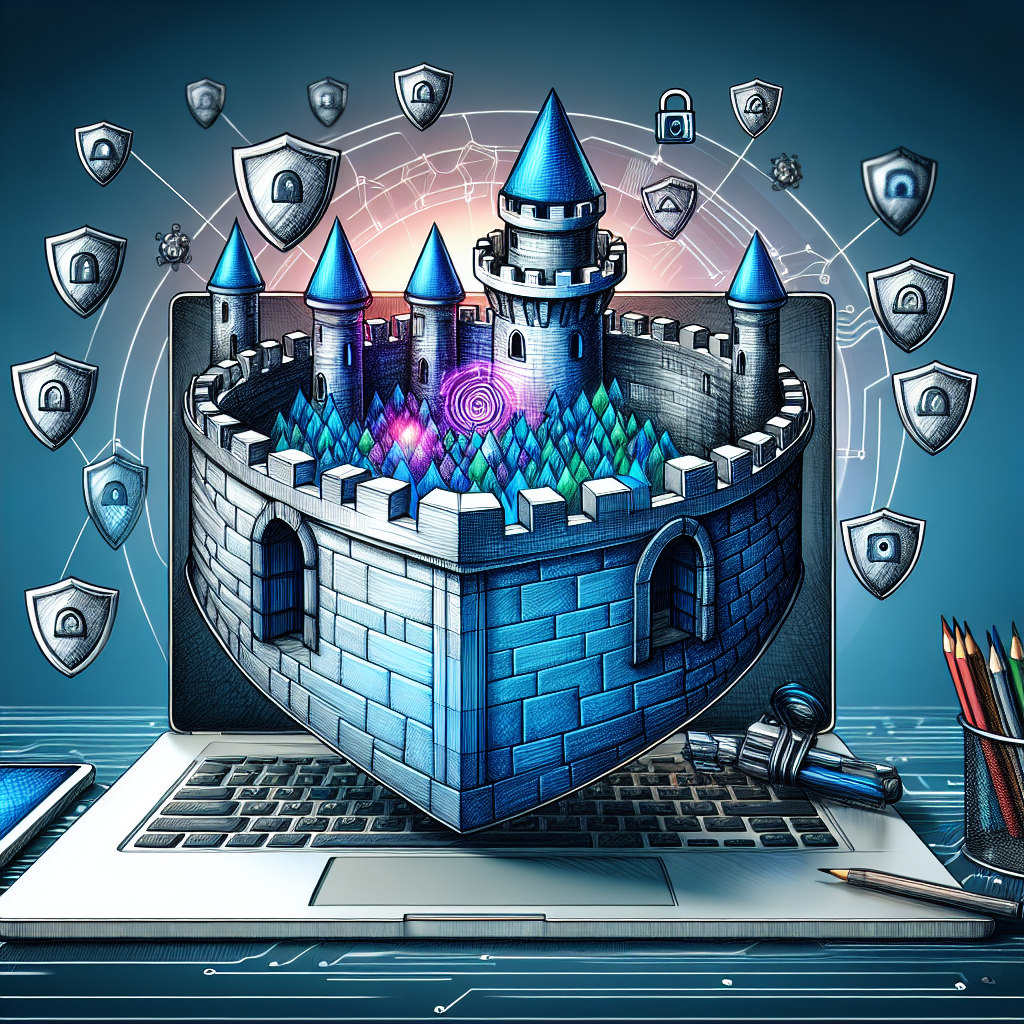
How to Protect Your Personal Data Online: Cybersecurity Tips for Individuals
In today’s digital age, protecting your personal data online is more important than ever. With the increasing number of cyber threats and data breaches, it is crucial to take steps to safeguard your information and prevent it from falling into the wrong hands. Here are some cybersecurity tips for individuals to help you protect your personal data online:1. Use strong, unique passwords: One of the easiest ways for hackers to gain access to your accounts is by guessing your password. To prevent this, make sure to use strong, unique passwords for each of your online accounts. Avoid using easily guessable passwords such as “password123” or “123456” and instead opt for a combination of letters, numbers, and special characters.
2. Enable two-factor authentication: Two-factor authentication adds an extra layer of security to your accounts by requiring a second form of verification, such as a code sent to your phone or email. This can help prevent unauthorized access to your accounts even if your password is compromised.
3. Be cautious of phishing scams: Phishing scams are a common tactic used by cybercriminals to trick individuals into revealing their personal information. Be wary of emails or messages that ask for sensitive information or contain suspicious links. Always double-check the sender’s email address and avoid clicking on any links or attachments from unknown sources.
4. Keep software and devices up to date: Software updates often include security patches that help protect your devices from vulnerabilities that could be exploited by hackers. Make sure to regularly update your operating system, web browsers, and any other software or apps you use to stay protected against the latest threats.
5. Secure your home network: If you use a Wi-Fi network at home, make sure to secure it with a strong password and encryption. Avoid using default network names and passwords, as these can be easily guessed by hackers. Additionally, consider setting up a guest network for visitors to prevent them from accessing your personal data.
6. Use a virtual private network (VPN): A VPN encrypts your internet connection and masks your IP address, making it harder for hackers to intercept your data. Use a reputable VPN service when connecting to public Wi-Fi networks or when accessing sensitive information online.
7. Monitor your accounts regularly: Keep an eye on your bank statements, credit reports, and online accounts for any suspicious activity. Report any unauthorized transactions or changes to your accounts immediately to prevent further damage.
By following these cybersecurity tips for individuals, you can better protect your personal data online and reduce the risk of falling victim to cyber threats. Remember to stay vigilant and proactive in safeguarding your information to keep it safe from hackers and cybercriminals.
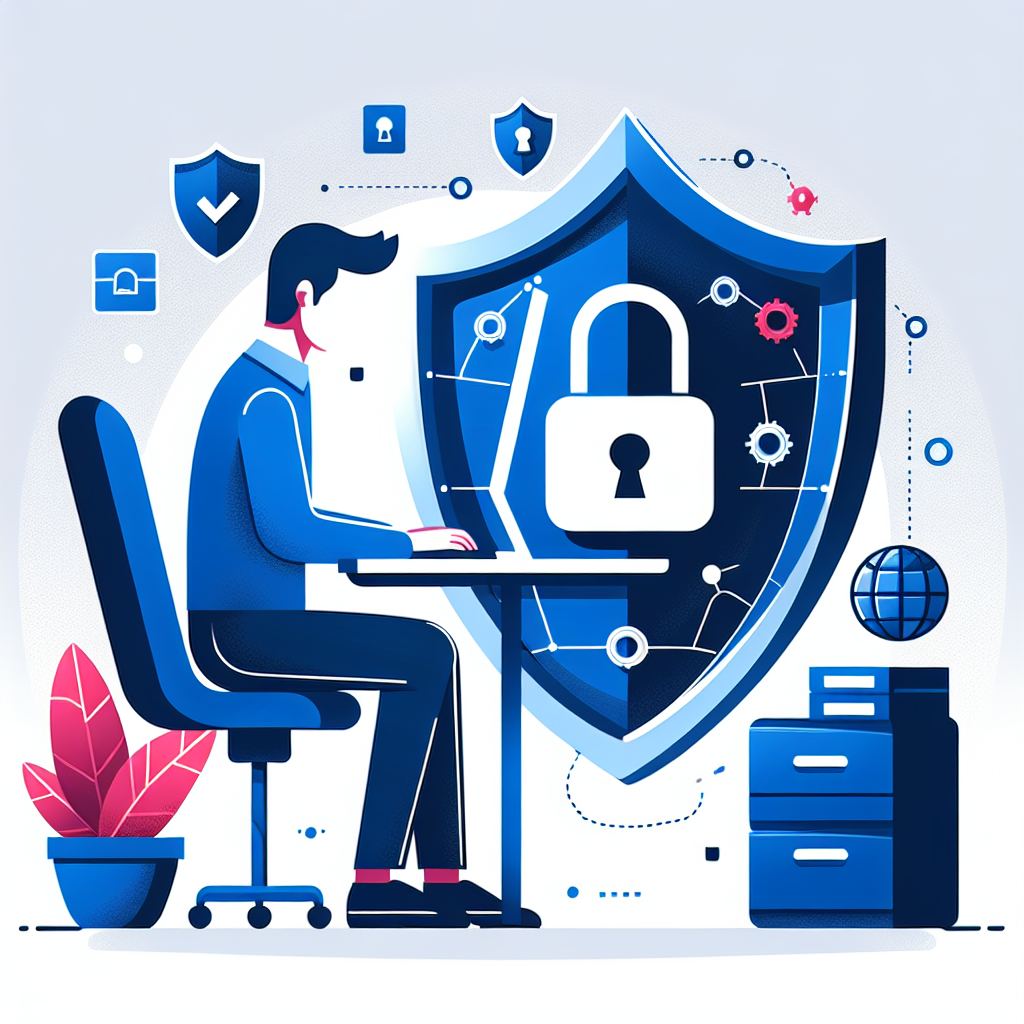
Protecting Your Personal Data: Cybersecurity Tips for Individuals
In today’s digital age, protecting your personal data has never been more important. With cyber threats on the rise, it’s crucial for individuals to take proactive steps to safeguard their information from falling into the wrong hands. Here are some cybersecurity tips to help you keep your personal data safe:1. Use strong, unique passwords: One of the easiest ways for cybercriminals to gain access to your personal data is by guessing your passwords. Make sure to use strong, unique passwords for all your accounts, and avoid using the same password for multiple accounts. Consider using a password manager to securely store and manage your passwords.
2. Enable two-factor authentication: Two-factor authentication adds an extra layer of security to your accounts by requiring a second form of verification, such as a text message or email, in addition to your password. Enable this feature on all your accounts that offer it to further protect your personal data.
3. Keep your software up to date: Software updates often include security patches that help protect your devices from vulnerabilities that cybercriminals can exploit. Make sure to regularly update your operating system, apps, and antivirus software to stay protected against the latest threats.
4. Be cautious of phishing scams: Phishing scams are fraudulent attempts to trick individuals into revealing personal information, such as passwords or credit card details. Be wary of emails, text messages, or phone calls from unknown sources, and avoid clicking on suspicious links or providing sensitive information.
5. Secure your Wi-Fi network: Make sure to secure your home Wi-Fi network with a strong password and encryption to prevent unauthorized access. Avoid using public Wi-Fi networks for sensitive activities, such as online banking or shopping, as they are often unsecured and can be easily compromised by cybercriminals.
6. Be mindful of what you share online: Be cautious about the information you share on social media and other online platforms. Avoid posting personal details, such as your address, phone number, or birthdate, as this information can be used by cybercriminals to steal your identity.
7. Monitor your accounts for suspicious activity: Regularly check your bank statements, credit reports, and online accounts for any unusual or unauthorized activity. Report any suspicious activity to the appropriate authorities and take immediate steps to secure your accounts.
By following these cybersecurity tips, you can help protect your personal data from cyber threats and safeguard your privacy online. Remember that cybersecurity is a shared responsibility, and it’s important to stay vigilant and proactive in protecting your information in today’s digital world.

How to Protect Your Personal Information Online: Cybersecurity Tips
In today’s digital age, protecting your personal information online is more important than ever. With cyber threats and data breaches on the rise, it’s crucial to take proactive steps to safeguard your sensitive data. Here are some cybersecurity tips to help you keep your personal information secure:1. Use strong, unique passwords: One of the easiest ways for hackers to gain access to your personal information is through weak passwords. Make sure to use a combination of letters, numbers, and special characters in your passwords, and avoid using the same password for multiple accounts.
2. Enable two-factor authentication: Two-factor authentication adds an extra layer of security to your accounts by requiring a second form of verification, such as a code sent to your phone. This can help prevent unauthorized access even if your password is compromised.
3. Be cautious of phishing scams: Phishing scams are a common tactic used by cybercriminals to trick individuals into revealing their personal information. Be wary of emails or messages that ask for sensitive information or contain suspicious links, and never click on links or download attachments from unknown sources.
4. Keep your software up to date: Software updates often include patches for security vulnerabilities, so it’s important to regularly update your operating system, web browser, and antivirus software to protect against potential threats.
5. Use a virtual private network (VPN): A VPN encrypts your internet connection, making it more difficult for hackers to intercept your data. This can help protect your personal information when using public Wi-Fi networks or browsing the internet from unsecured locations.
6. Secure your social media accounts: Be mindful of the information you share on social media platforms, as this can be used by hackers to gather personal details about you. Set your privacy settings to limit who can see your posts and information, and be cautious of friend requests from unknown individuals.
7. Monitor your accounts regularly: Keep an eye on your financial accounts, credit reports, and online activity for any suspicious activity. Report any unauthorized transactions or changes to your accounts immediately to prevent further damage.
By following these cybersecurity tips and staying vigilant about protecting your personal information online, you can reduce the risk of falling victim to cyber threats and data breaches. Remember that safeguarding your sensitive data is a continuous process, so make sure to stay informed about the latest security practices and take proactive measures to keep your information secure.
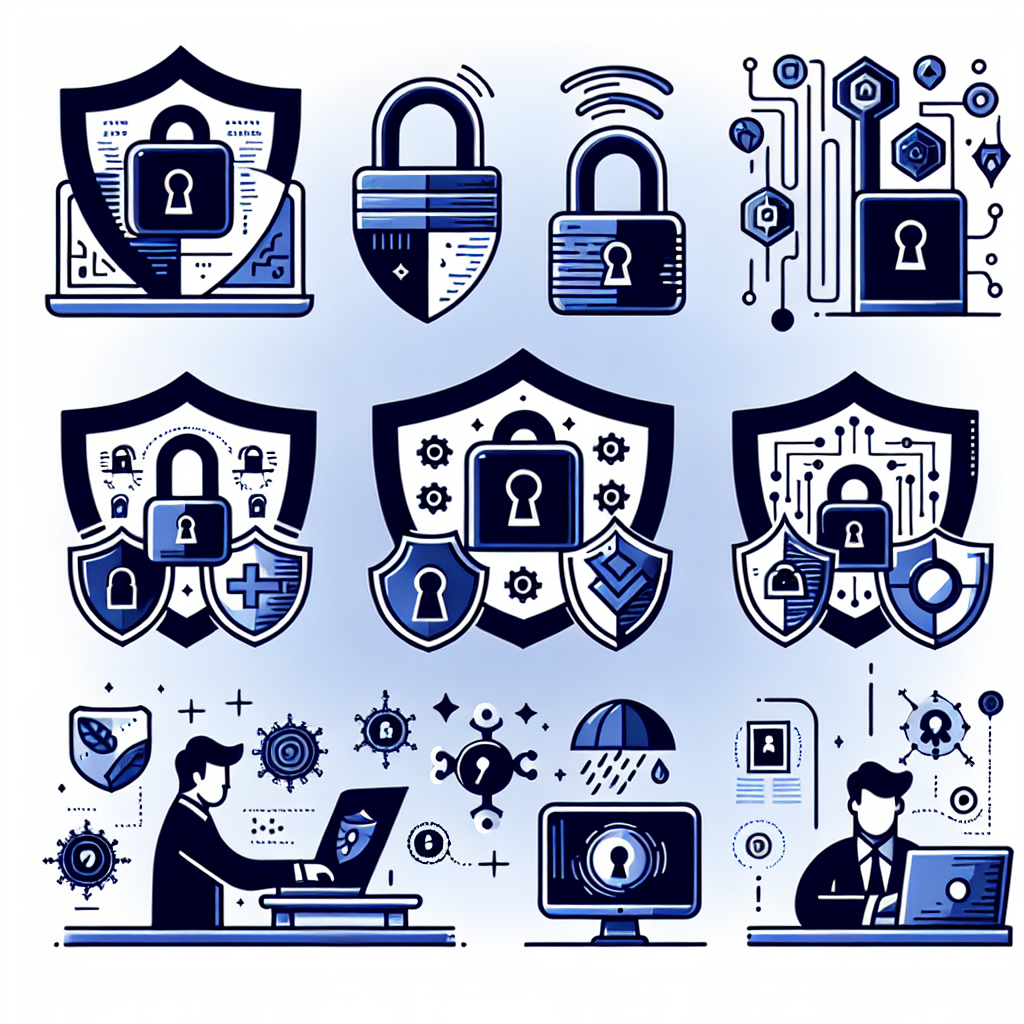
7 Essential Cybersecurity Tips for Protecting Your Personal Information
In today’s digital age, protecting your personal information online is more important than ever. With the increase in cyber threats and data breaches, it’s crucial to take steps to safeguard your sensitive data. Here are seven essential cybersecurity tips to help you protect your personal information:1. Use strong, unique passwords: One of the easiest ways for cybercriminals to access your personal information is through weak passwords. Make sure to create strong, unique passwords for each of your online accounts. Avoid using easily guessable passwords like “123456” or “password” and consider using a password manager to help keep track of your passwords securely.
2. Enable two-factor authentication: Two-factor authentication adds an extra layer of security to your online accounts by requiring a second form of verification, such as a code sent to your phone or email. Enable two-factor authentication whenever possible to protect your accounts from unauthorized access.
3. Keep your software up to date: Cybercriminals often exploit vulnerabilities in outdated software to gain access to your personal information. Make sure to regularly update your operating system, web browsers, and apps to patch any security vulnerabilities and keep your devices secure.
4. Be cautious of phishing emails: Phishing emails are a common tactic used by cybercriminals to trick you into revealing sensitive information. Be cautious of emails asking for personal information or containing suspicious links or attachments. Always verify the legitimacy of the sender before clicking on any links or providing any information.
5. Secure your Wi-Fi network: Secure your home Wi-Fi network with a strong password and encryption to prevent unauthorized users from accessing your network and intercepting your data. Consider disabling the broadcast of your network’s SSID and enabling a firewall to further enhance your network security.
6. Limit the information you share online: Be mindful of the information you share on social media and other online platforms. Avoid posting sensitive personal information like your address, phone number, or financial details, as this information can be used by cybercriminals to target you for identity theft or fraud.
7. Monitor your accounts regularly: Stay vigilant and monitor your online accounts regularly for any suspicious activity. Check your account statements, credit reports, and online transactions for any signs of unauthorized access or fraudulent activity. Report any suspicious activity to the appropriate authorities immediately.
By following these seven essential cybersecurity tips, you can help protect your personal information and reduce the risk of falling victim to cyber threats. Remember to stay informed about the latest cybersecurity trends and best practices to stay one step ahead of cybercriminals and keep your personal information safe online.
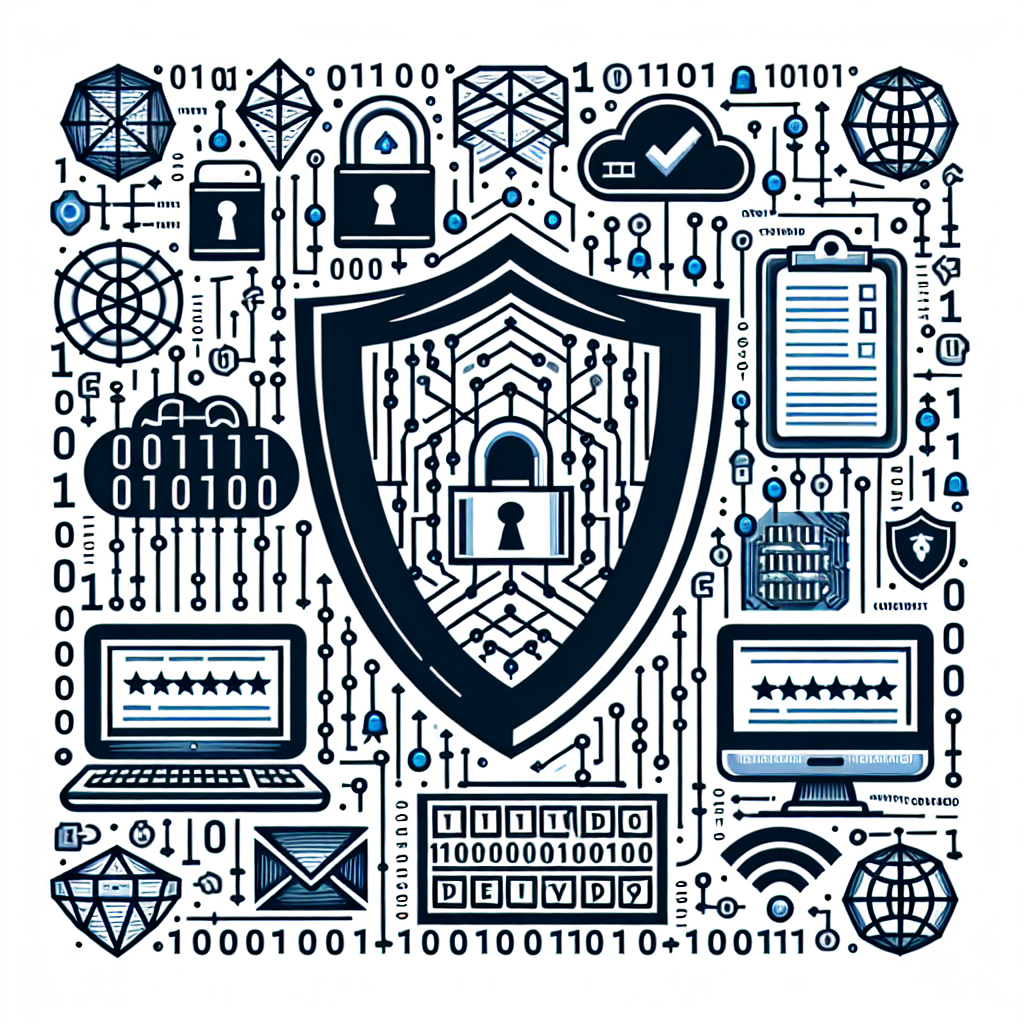
Protecting Your Personal Information: A Guide to Cybersecurity
In today’s digital age, protecting your personal information is more important than ever. With the rise of cyber threats and identity theft, it’s crucial to take steps to safeguard your sensitive data. From online shopping to social media, our personal information is constantly at risk of being compromised. Here are some tips to help you protect your personal information and stay safe online.Use strong, unique passwords for all your accounts. Avoid using easily guessable passwords like “123456” or “password.” Instead, create strong passwords that include a mix of letters, numbers, and special characters. It’s also important to use different passwords for each of your accounts to minimize the risk of a security breach.
Enable two-factor authentication on your accounts. Two-factor authentication adds an extra layer of security by requiring both a password and a verification code to log in to your accounts. This can help prevent unauthorized access to your personal information, even if your password is compromised.
Be cautious when sharing personal information online. Avoid posting sensitive information like your full name, address, phone number, or social security number on social media or other websites. Be wary of phishing emails or messages that ask for personal information, and always verify the sender’s identity before sharing any sensitive data.
Keep your devices and software up to date. Regularly update your operating system, antivirus software, and applications to protect against security vulnerabilities. Enable automatic updates whenever possible to ensure that your devices are always running the latest security patches.
Use secure Wi-Fi networks. Avoid connecting to public Wi-Fi networks that are unsecured or have weak encryption. Hackers can easily intercept your data on these networks, putting your personal information at risk. Instead, use a virtual private network (VPN) to encrypt your internet connection and protect your data from prying eyes.
Monitor your accounts for suspicious activity. Regularly review your bank statements, credit reports, and online accounts for any unauthorized transactions or changes. Report any suspicious activity to your financial institution or the appropriate authorities immediately to prevent further damage.
By following these tips, you can protect your personal information and reduce the risk of falling victim to cyber threats. Remember to stay vigilant and proactive in safeguarding your sensitive data online. Your privacy and security are worth the extra effort.
